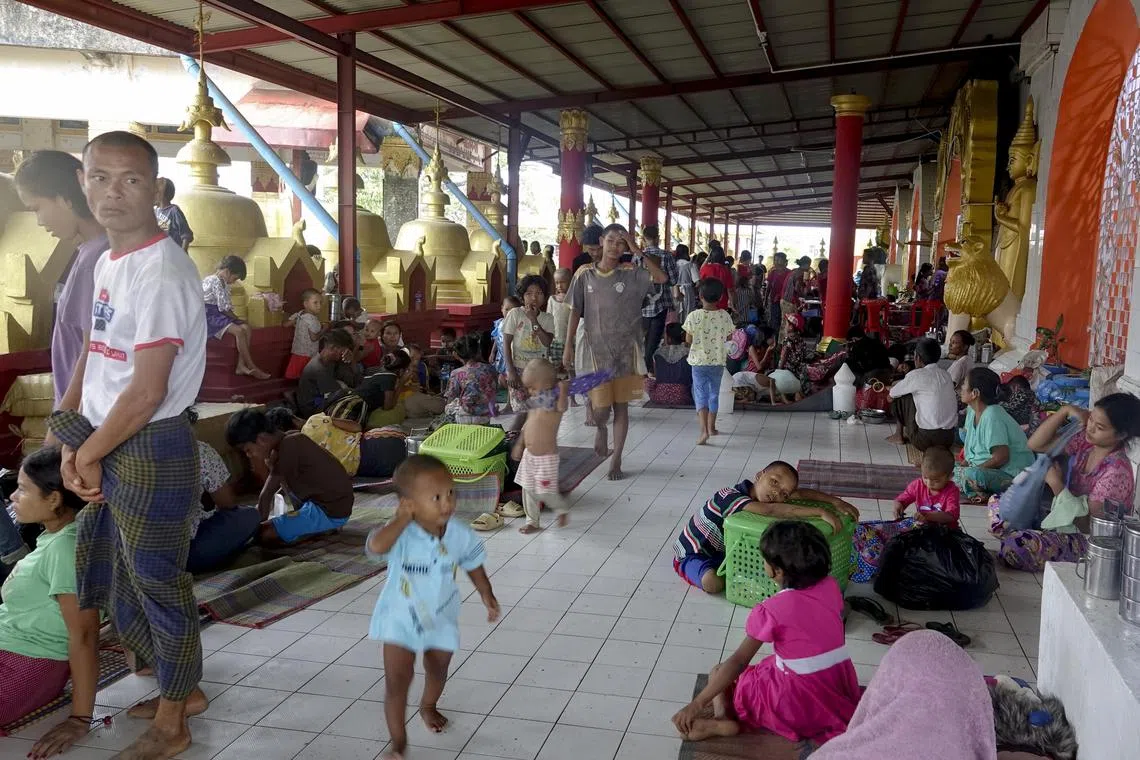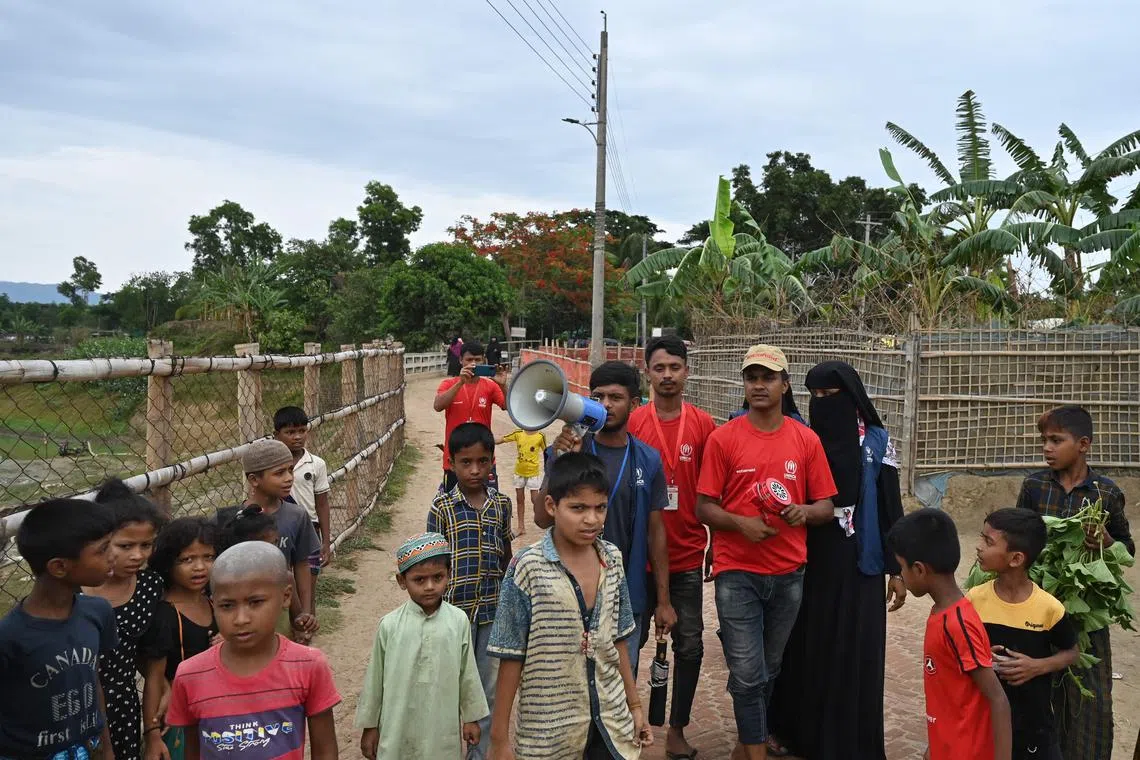Bangladesh evacuations ahead of ‘very severe’ Cyclone Mocha
Sign up now: Get insights on Asia's fast-moving developments
TEKNAF, Bangladesh - Thousands fled Myanmar’s west coast and officials in neighbouring Bangladesh raced to evacuate Rohingya refugees on Saturday as the most powerful cyclone for over a decade
Bangladesh on Saturday moved to evacuate Rohingya refugees from “risky areas” to community centres and hundreds fled an island as the cyclone
Cyclone Mocha was packing winds of up to 220kmh, according to India’s meteorological office, equivalent to a category four hurricane.
It is expected to weaken before making landfall on Sunday morning between Cox’s Bazar, where nearly one million Rohingya refugees live in camps largely made up of flimsy shelters, and Sittwe, on Myanmar’s western Rakhine coast.
On Saturday, Sittwe residents piled possessions and pets into cars, trucks and tuk-tuks and headed for higher ground, according to AFP reporters.
“We have our grandma in our family and we have to take care of her,” Mr Khine Min told AFP from a truck packed with his relatives on a road out of the state capital.
“There is only one man left in Sittwe to take care of our homes.”
Shops and markets in the town of about 150,000 people were shuttered, with many locals sheltering in monasteries.
Mr Kyaw Tin, 40, said he could not leave the area as his son was in a local hospital.
“I hope this cyclone won’t come to our state. But if this fate happens, we can’t ignore it,” he said.
“I’m worried that this cyclone will affect our state just like Nargis did,” he added, referring to a 2008 storm that killed more than 130,000 people in southern Myanmar.
Myanmar’s junta authorities were supervising evacuations from villages along the Rakhine coast, state media reported on Friday.
Myanmar Airways International said all its flights to Rakhine state had been suspended until Monday.
The Myanmar Red Cross Society said it was “preparing for a major emergency response”.

People gathering at a monastery used as a temporary shelter in Sittwe, Rakhine State, Myanmar, on May 13, 2023.
PHOTO: EPA-EFE
“Cyclone Mocha is the most powerful storm since Cyclone Sidr,” said Mr Azizur Rahman, the head of Bangladesh’s Meteorological Department.
That cyclone hit Bangladesh’s southern coast in November 2007, killing more than 3,000 people and causing billions of dollars in damage.
Bangladeshi authorities have banned the Rohingya from constructing permanent concrete homes, fearing it may incentivise them to settle permanently rather than return to Myanmar, which they fled five years ago.
“We live in houses made of tarpaulin and bamboo,” said refugee Enam Ahmed, who lives at the Nayapara camp near the border town of Teknaf.
“We are scared. We don’t know where we will be sheltered. We are in a panic.”

UN workers alerting people at Nayapara Rohingya refugee camp, ahead of Cyclone Mocha’s landfall, in Teknaf, Bangladesh, on May 13, 2023.
PHOTO: AFP
Forecasters expect the cyclone to bring a deluge of rain, which can trigger landslides.
Most of the camps are built on hillsides, and landslips are a regular phenomenon in the region.
The cyclone is also predicted to unleash a storm surge up to 4m high, which can inundate low-lying coastal and riverine villages.
Officials said thousands of volunteers were evacuating the Rohingya from “risky areas” to more solid structures such as schools.
But Bangladesh’s deputy refugee commissioner Shamsud Douza told AFP: “All the Rohingya in the camps are at risk.”
Panic has also gripped some 8,000 people in Bangladesh’s southern-most island of Saint Martin’s, with the tiny coral outcrop – one of the country’s top resort districts – right in the storm’s path.
Resident Dilara Begum travelled to Teknaf to wait out the storm.
“Many have also left,” she said. “It is an island in the middle of the sea. We have been living in fear over the past few days.”
Officials said around 1,000 Saint Martin’s islanders have done the same, moving 250 boats to Teknaf to try to prevent them from being washed away.
Operations were suspended at the country’s largest seaport, Chittagong, with boat transport and fishing activities also halted. AFP


